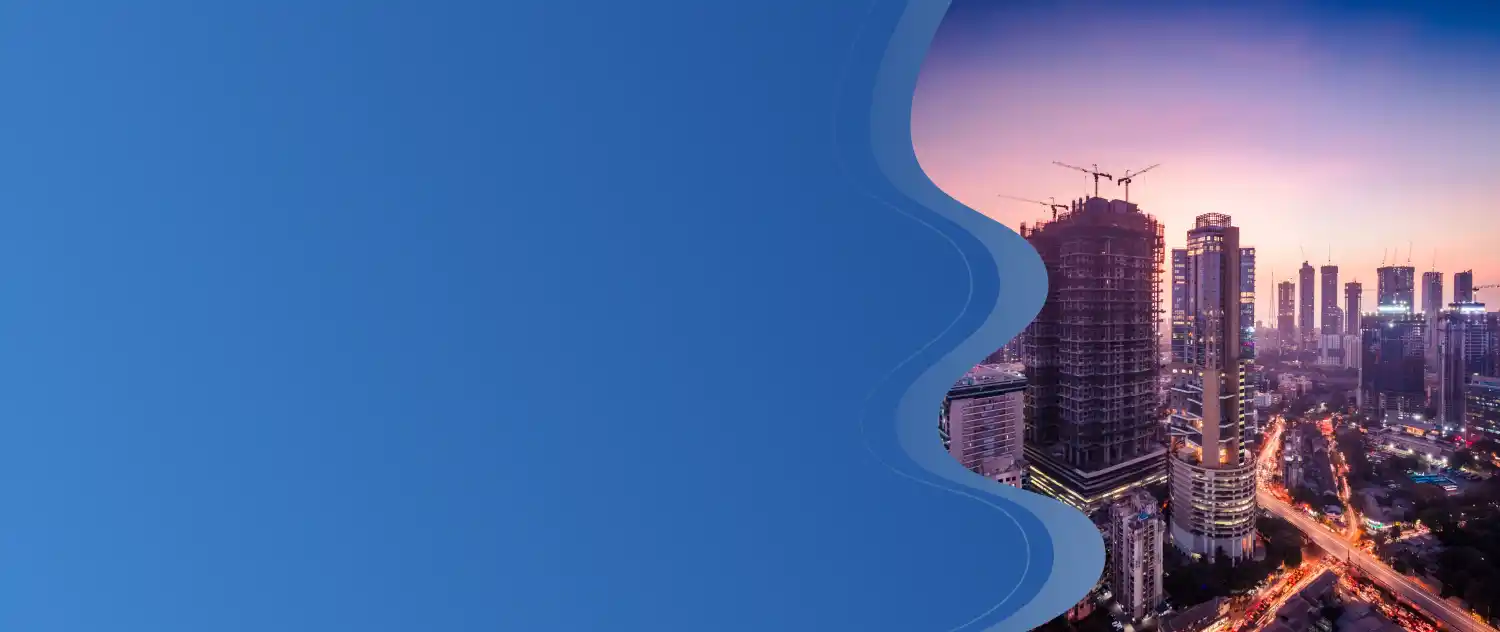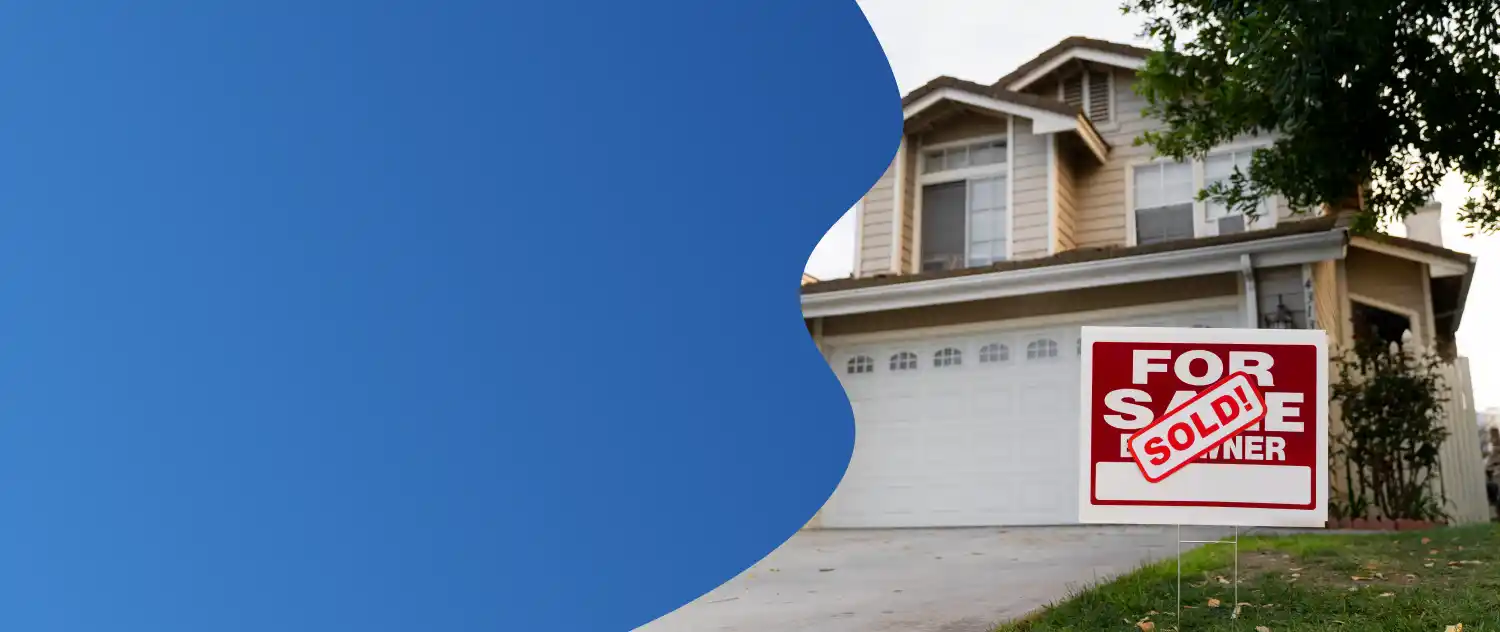Justin Trudeau's Resignation: Reasons, Impact, and Legacy as Canada’s Prime Minister
Updated on : 06 January, 2025
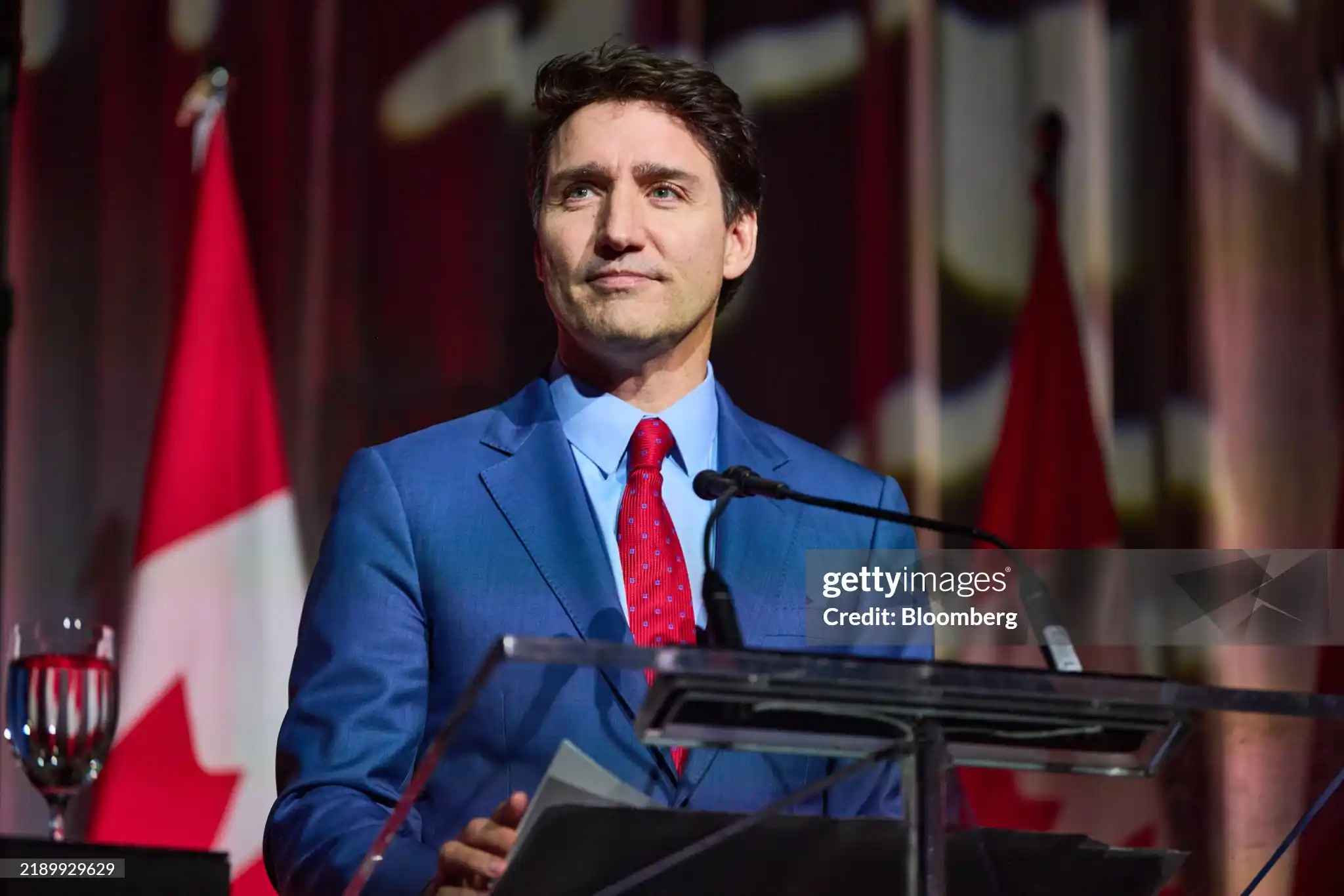
Image Source: Getty Images
Justin Trudeau's tenure as Canada's Prime Minister has been a mix of notable achievements and growing challenges. As of December 2024, increasing internal party pressure and public discontent have fueled speculation about his potential resignation. With declining popularity, economic challenges, and internal party turmoil, Trudeau’s leadership faces a critical juncture. This blog explores the reasons, consequences, and broader implications of his possible resignation, alongside a reflection on his journey and legacy.
Resignation as Prime Minister
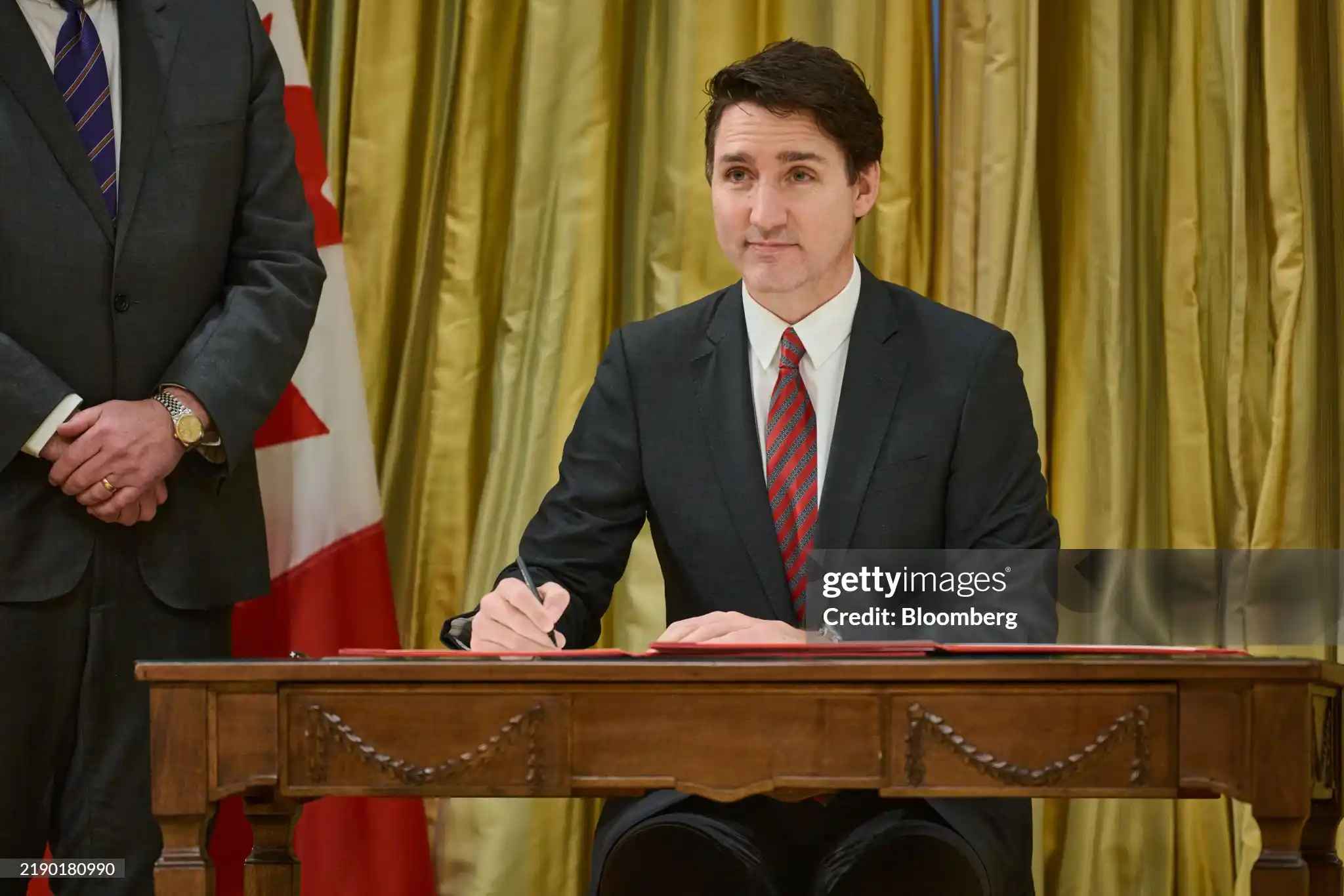
Image Source: Getty Images
Justin Trudeau, the Prime Minister of Canada, is poised to announce his resignation, likely on January 6, 2025. This decision follows significant internal pressure within the Liberal Party, exacerbated by the recent resignation of Finance Minister Chrystia Freeland, who publicly criticized Trudeau’s leadership and management style.
Trudeau's tenure has faced challenges, including declining popularity due to rising inflation and cost-of-living issues, leading to dissatisfaction among voters. Many Liberal MPs have expressed concerns about his ability to lead the party effectively in light of these challenges. As a result, there is growing speculation that Trudeau may step down before the next federal election, which is expected by late October 2025.
If he resigns, it would create a leadership vacuum within the Liberal Party during a critical time, potentially impacting their chances in upcoming elections. The party would need to elect a new leader, which could take several months and may lead to calls for an immediate general election. Trudeau's potential resignation marks a significant turning point in Canadian politics as the country navigates its future direction amid economic and political uncertainties.
Reason of Resignation
Justin Trudeau's anticipated resignation as Prime Minister of Canada is primarily driven by mounting internal and external pressures. Following the resignation of Finance Minister Chrystia Freeland on December 16, 2024, who publicly criticized Trudeau's leadership, calls for his departure intensified among Liberal Party lawmakers. Many party members have expressed a loss of confidence in his ability to lead, particularly as recent polls indicate a significant risk of losing to the Conservative Party in the next election.
Factors contributing to this situation include voter fatigue over high inflation and a housing crisis, which have led to widespread dissatisfaction among Canadians. Additionally, more than 50 Liberal MPs from Ontario reportedly held discussions urging Trudeau to step down. The combination of declining public support, internal party dissent, and the looming threat of a "no confidence" vote has created an environment where Trudeau's resignation is increasingly viewed as necessary for the party's future viability.
Popular Blogs
Consequences of His Resignation
The resignation of Justin Trudeau as Prime Minister of Canada would have significant consequences for the political landscape. Firstly, it would create a leadership vacuum within the Liberal Party, potentially destabilizing the government as they seek a new leader. This transition could lead to a temporary interim leader, but the lack of a permanent head may weaken the party's position in Parliament.
Furthermore, Trudeau's departure could trigger calls for an early election, especially if opposition parties, including the Conservatives and NDP, pursue a no-confidence vote. The Liberal Party's current unpopularity—evident in recent polls—could make it challenging to maintain power without strong leadership.
Additionally, Trudeau's resignation might impact Canada's international relations, particularly with the United States and India, as new leadership could shift diplomatic priorities. Overall, his exit would mark a pivotal moment in Canadian politics, with implications for governance and party dynamics moving forward.
Early Life
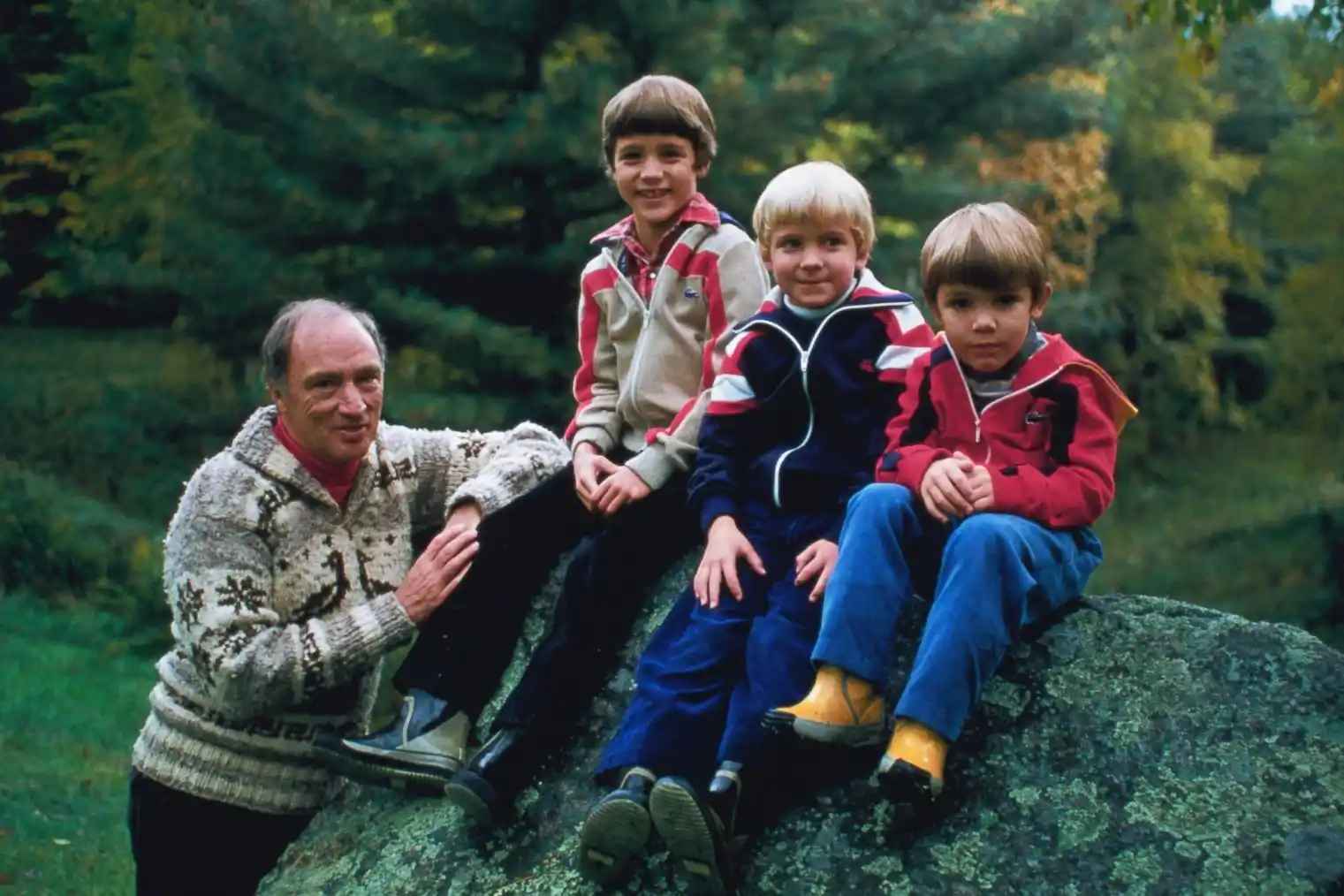
Image Source: Google
Justin Trudeau was born on December 25, 1971, in Ottawa, Ontario, as the eldest son of Pierre and Margaret Trudeau, both prominent figures in Canadian politics. Growing up in a politically charged environment, he experienced life in the public eye from an early age. His parents' divorce when he was six led him and his two younger brothers to be raised primarily by their father, who was then Prime Minister.
Trudeau attended Collège Jean-de-Brébeuf in Montreal, a prestigious Jesuit school where he developed a strong academic foundation. He later earned a Bachelor of Arts in English from McGill University in 1994 and a Bachelor of Education from the University of British Columbia in 1998. Before entering politics, he worked as a teacher in Vancouver, teaching subjects such as French and math. His early experiences shaped his commitment to public service and advocacy for youth engagement in civic matters.
Path to Prime Ministership
Justin Trudeau's path to Prime Ministership began with his election as the Member of Parliament for Papineau in 2008, after winning the Liberal nomination in 2007. Despite initially shying away from politics, he became more active following the death of his father, former Prime Minister Pierre Trudeau, in 2000. His public speaking skills were highlighted when he delivered a moving eulogy at his father's funeral, which garnered significant attention and speculation about his political future.
Trudeau was re-elected in 2011, even as the Liberal Party faced significant challenges. He officially launched his campaign for the Liberal leadership in 2012 and quickly emerged as a frontrunner, winning the position in April 2013 with nearly 80% of the vote. Under his leadership, the party revitalized its image and gained public support. On October 19, 2015, Trudeau led the Liberals to a majority victory in the federal election, officially becoming Canada’s 23rd Prime Minister on November 4, 2015.
Role as Prime Minister
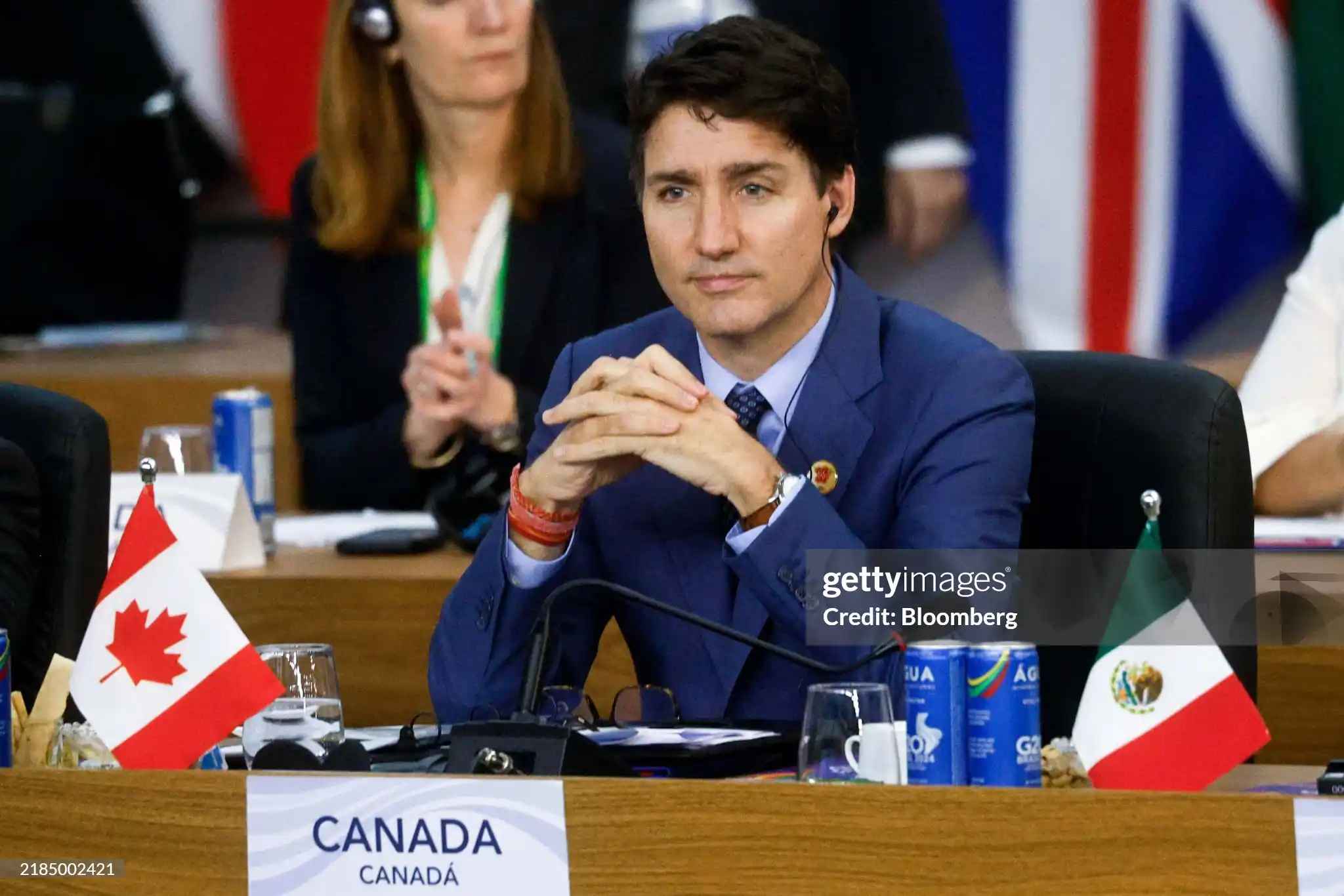
Image Source: Getty Images
As Prime Minister of Canada since November 4, 2015, Justin Trudeau has played a pivotal role in shaping national policies and governance. His administration is characterized by a commitment to progressive values, focusing on issues such as climate change, economic growth, and social justice. Trudeau has been a strong advocate for environmental protection, implementing measures aimed at achieving net-zero emissions by 2050 and investing in clean energy initiatives.
His government has prioritized middle-class prosperity by cutting taxes for this demographic while ensuring that wealthier Canadians contribute more. Trudeau's leadership also emphasizes inclusivity; he appointed Canada’s first gender-balanced Cabinet and has championed Indigenous rights and reconciliation efforts.
Throughout his tenure, Trudeau has navigated significant challenges, including the COVID-19 pandemic and various ethical controversies. His ability to lead during these turbulent times has defined his role as Prime Minister, reflecting both his strengths and the complexities of Canadian politics.
Important Decisions Under His Prime Ministership
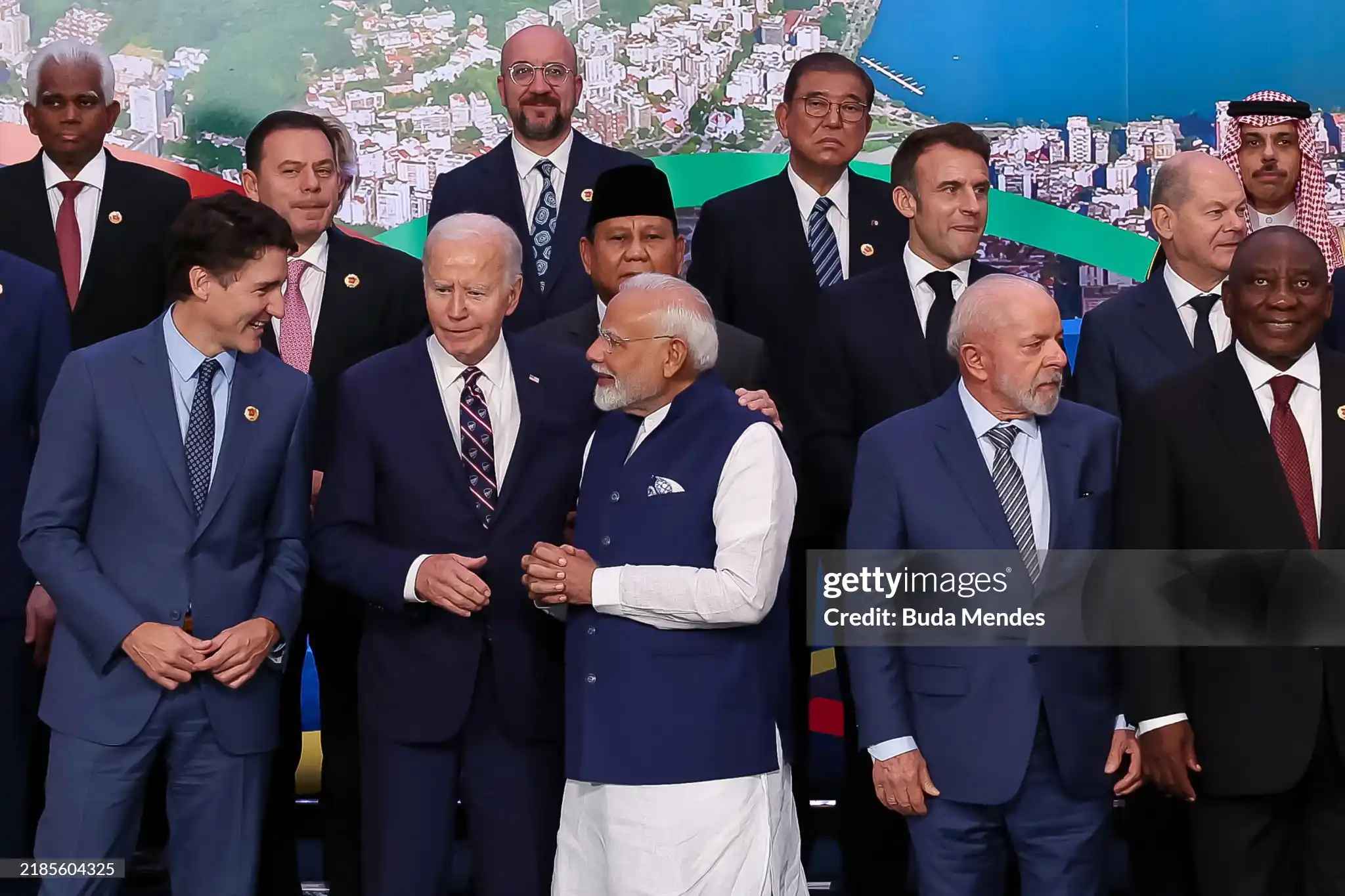
Image Source: Getty Images
During his tenure as Prime Minister, Justin Trudeau made several important decisions that significantly impacted Canada:
- COVID-19 Response: Trudeau's government implemented extensive measures to support Canadians during the pandemic, including the Canada Emergency Response Benefit (CERB) to provide financial aid to those affected by job losses.
- Cannabis Legalization: In October 2018, Canada became the first G7 country to legalize recreational cannabis, a landmark decision aimed at reducing crime and regulating the market.
- Climate Initiatives: Trudeau introduced a federal carbon tax to combat climate change and reaffirmed Canada’s commitment to the Paris Agreement, aiming for significant reductions in greenhouse gas emissions.
- National Child Care Program: His administration launched a national $10-a-day child care initiative, aimed at making child care more affordable for families across Canada.
- Indigenous Rights: Trudeau's government focused on reconciliation efforts with Indigenous peoples, including commitments to improve living conditions and address historical injustices.
These decisions reflect Trudeau's commitment to progressive policies and his response to pressing national issues.
Challenges Faced During Tenure
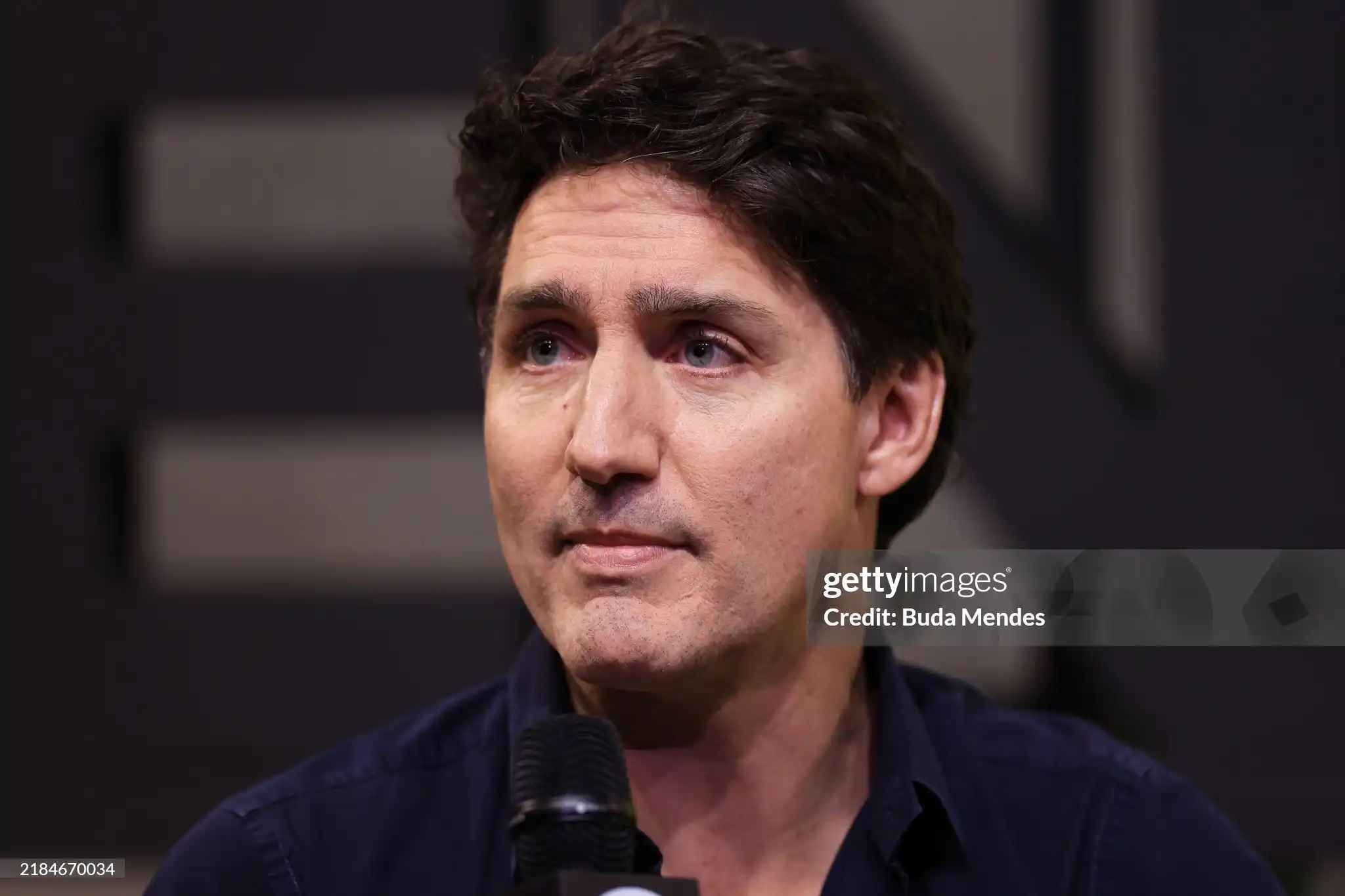
Image Source: Getty Images
During his tenure as Prime Minister, Justin Trudeau faced several significant challenges:
- Declining Popularity: Rising inflation and a cost-of-living crisis led to widespread dissatisfaction among Canadians, resulting in plummeting approval ratings and increasing calls for alternative leadership.
- Internal Party Dissent: Trudeau encountered growing pressure within the Liberal Party, especially following the resignation of Finance Minister Chrystia Freeland. Reports indicated that many MPs questioned his leadership effectiveness, creating divisions within the party.
- Ethical Controversies: His government faced scrutiny over various ethical issues, including investigations related to the WE Charity scandal and allegations of conflicts of interest, which damaged public trust.
- Foreign Policy Struggles: Trudeau's handling of international relations, particularly with India and China, drew criticism for perceived inconsistencies and diplomatic strains.
- Public Protests: His policies sparked protests on issues like immigration and labor rights, highlighting a disconnect between his government and certain voter groups.
These challenges have significantly shaped Trudeau's political landscape.
Awards and Recognition
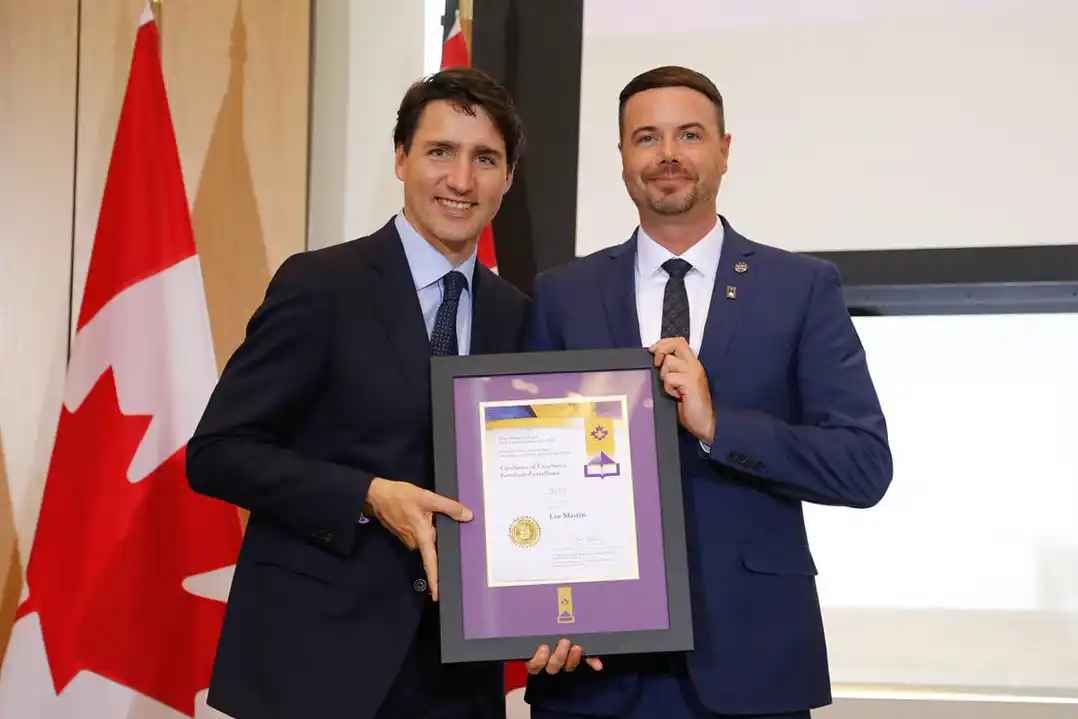
Image Source: Google
Justin Trudeau has received various awards and recognitions throughout his political career, reflecting his contributions to environmental advocacy, social justice, and leadership. Below is a table summarizing some of the notable awards and recognitions he has received:
| Year | Award/Recognition | Description |
|---|---|---|
| 2020 | Honorary Fellowship from the Royal Canadian Geographical Society | Awarded for his commitment to environmental issues and leadership on climate change initiatives. |
| 2021 | Planetary Leadership Award | Recognized for efforts to protect 25% of Canada's land and oceans by 2025. |
| 2022 | G7 Presidency | Canada, under Trudeau's leadership, assumed the presidency of the G7, emphasizing global cooperation. |
| 2023 | United Nations Global Climate Action Award | Honored for Canada’s initiatives in climate action and sustainability efforts. |
| 2024 | Honorary Doctorate from the University of Toronto | Received for his contributions to public service and advocacy for social justice. |
These accolades highlight Trudeau's focus on environmental stewardship, social equity, and his role in international diplomacy.
Personal Life and Values
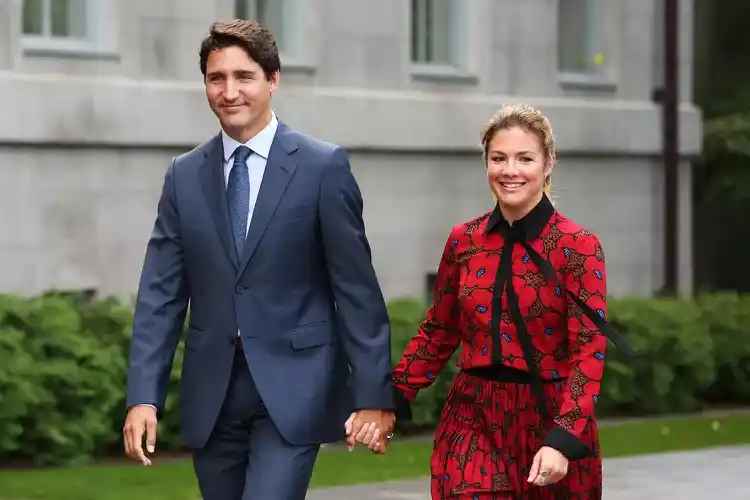
Image Source: Google
Justin Trudeau values family, inclusivity, and social justice. He married Sophie Grégoire in 2005, and they have three children: Xavier, Ella-Grace, and Hadrien. In August 2023, they announced their separation but emphasized their commitment to co-parenting. Trudeau’s upbringing in a politically active family shaped his dedication to public service and community engagement.
He advocates for equality and environmental stewardship, which are central to his political philosophy. His experiences as a teacher and his personal challenges have fostered an empathetic leadership style, reflecting his belief in the importance of education and youth involvement in civic matters.
Conclusion
Justin Trudeau's journey as Canada's Prime Minister has been marked by significant achievements alongside considerable challenges. As he faces mounting pressure regarding his future role within Canadian politics amid calls for resignation from various quarters, it remains crucial to evaluate not only his past contributions but also the potential implications of any leadership transition for Canada's political landscape moving forward.
In summary, whether or not Trudeau resigns will shape both his legacy and the future direction of Canadian governance during these turbulent times.




